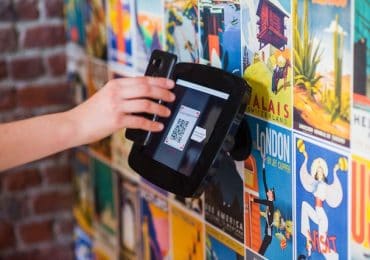Business owners like yourself are responsible for handling the data that your customers willingly share with you. Such information is important in processing transactions and verifying the identities of people who do business with you.

Regardless of what products or services you offer, it’s important to limit how much customer information is exposed in the open. Cybercriminals are always on the prowl for sensitive data. And when a data breach happens, the liability will always fall on the business owner.
Protecting critical data is not only required by law but also necessary. Knowing how to apply this in your business will spare you from the legal fallout that follows a data breach. Learn more in this essential data security guide.
- Limit the amount of information you require
Whether it’s for marketing or verification purposes, your data collection process should be restricted only to essential information. In many cases, you can only make do with names and email addresses. You may also require sensitive information, but be specific as to the type. If there’s any data you can do without, it’s best that you cross it out. Limiting the data you collect reduces your customer’s exposure in case of a major privacy leak.
- Provide additional authentication methods
In case you require customers to create an online account on your website, provide them with additional ways to log in safely. The first thing you can do is to set up a password tester that requires users to use stronger and more complicated passwords. For extra security, allow your customers to use two-factor authentication. This also helps in weeding out unverified users.
- Educate and equip your staff
No matter how secure your business is against hacking attempts, a breach will still be possible if your employees fail to follow best practices. Law firms like Purser Law have worked on fraud cases involving stolen identities, many of which were caused by employee negligence rather than a lack of security tools. Even so, you still have the responsibility to ensure that customer data is kept safe from prying eyes. All it takes is training your employees including remote workers to identify security threats and follow good data hygiene.
- Use data encryption to prevent interceptions
The information that travels from one point to another can still be intercepted by hackers. The best way you can prevent customer data from falling into the wrong hands is to scramble the information you share. Using data encryption, you can securely share sensitive user data with another access point. It can still be intercepted, but hackers won’t be able to read the data unless they have an encryption key. This key can only be used by permitted users, so customers have nothing to worry about.
- Also, start a file retention schedule
A File Retention Schedule is a policy that outlines how long different types of records should be stored before they are securely disposed of or archived. It helps secure customers’ data by ensuring that sensitive information is not kept longer than necessary, reducing the risk of data breaches and unauthorized access. The benefits of a file retention schedule are that businesses can comply with legal and regulatory requirements, minimize liability, and enhance data security practices.
Endnote
Businesses like yours run on large amounts of customer data. With proper data security methods in place, your customers can breathe a sigh of relief and you can rest easy knowing that you’re less likely to face a fraud lawsuit.